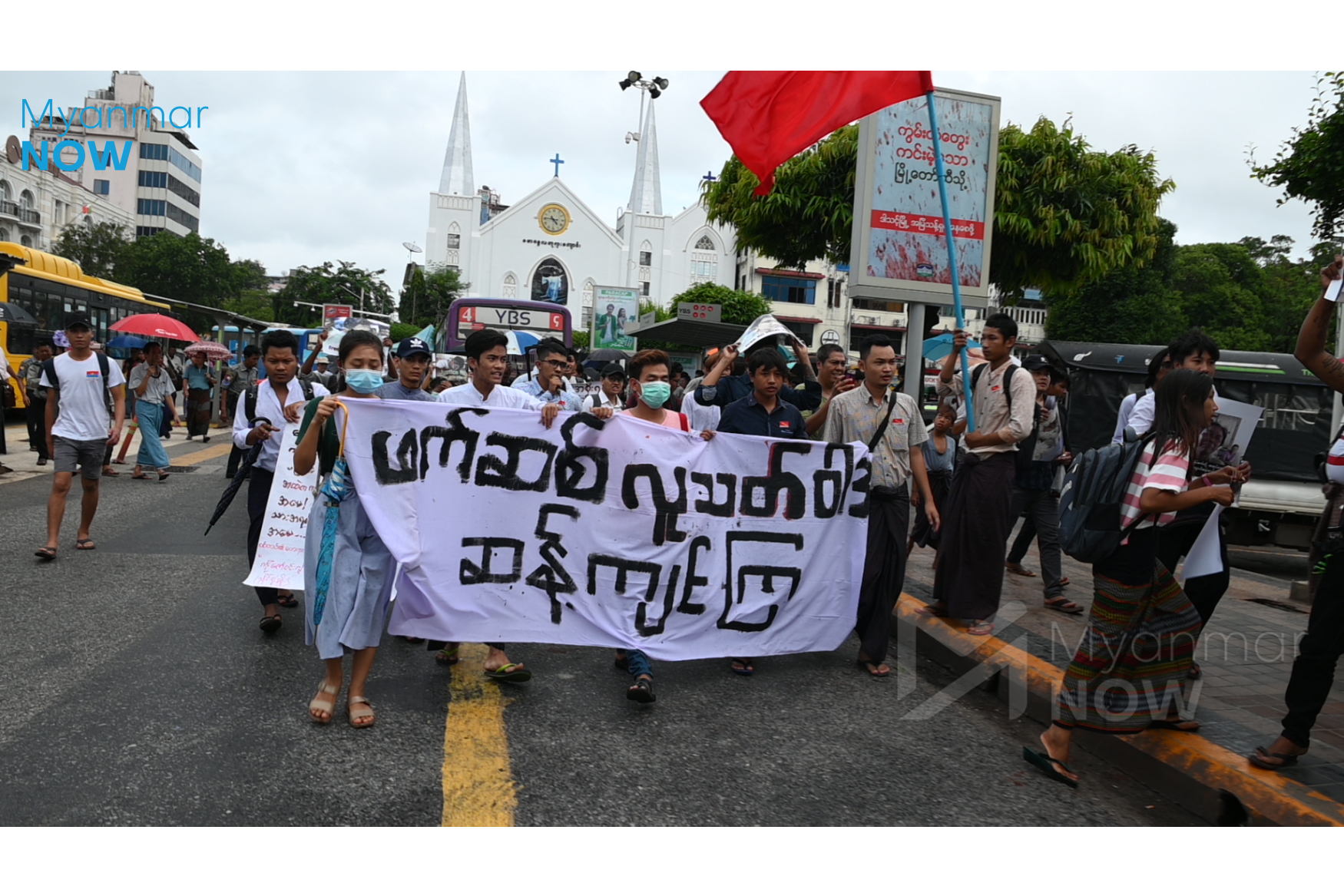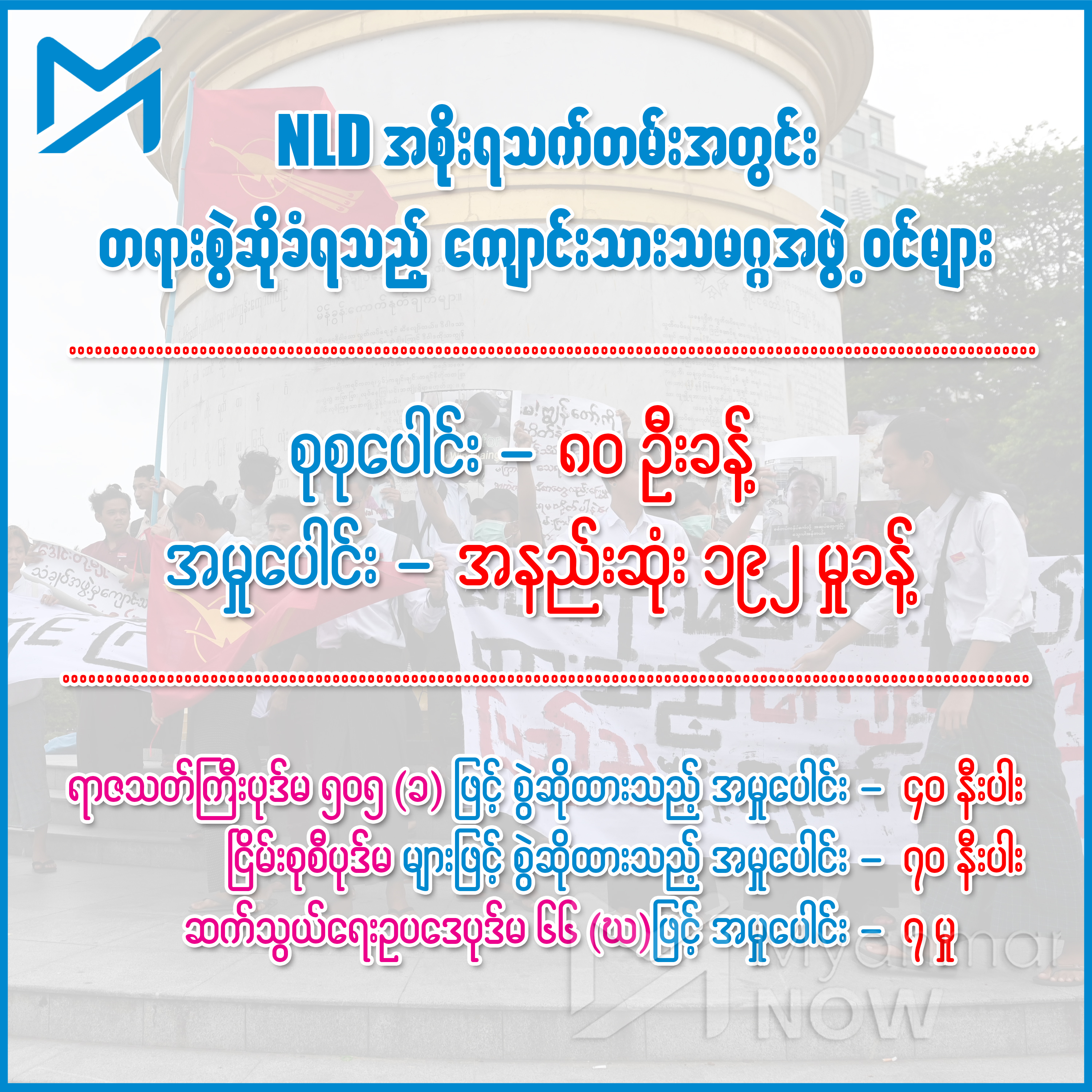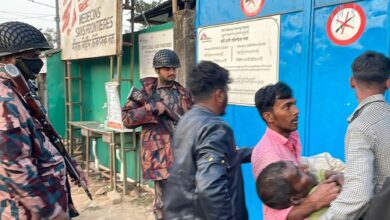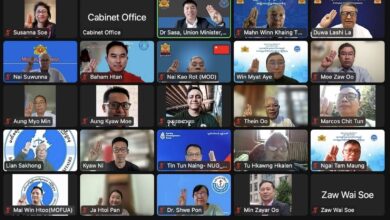
Five years after coming to power, the ruling National League for Democracy (NLD) has done little to end some of the worst practices of the past, say activists who hope to see progress on this front in the party’s next term in office.
Pointing to the continued incarceration of dozens of political prisoners, these activists say that it is time for the ruling party—which emerged from the struggle against military rule—to remove repressive laws once and for all.
At present, there are at least 30 political prisoners still behind bars in Myanmar, and twice that many out on bail awaiting trial on charges under draconian laws drafted by the former colonial government or successive military dictatorships.
Of these, around half are student union members serving or facing prison sentences for a host of offenses, from organizing anti-war protests and calling for an end the Internet blackout in Rakhine state to participating in labour strikes and criticizing university authorities.
Over the past five years, government or military authorities have filed more than 190 lawsuits against student activists for alleged violations of some of the country’s most outdated laws, including sections 505(a) and (b) of the colonial-era penal code, which makes it a crime to publish or circulate “any statement, rumour or report” that could incite members of the public to commit offences against the state or “public tranquillity”.
More recent laws, such as the Telecommunications Law and the Peaceful Assembly and Peaceful Procession Law, both introduced under the quasi-civilian administration of former president Thein Sein, have also been invoked to silence critics of the government or military. In addition, some have been sued for contempt of court.
For some, the situation has barely improved at all after five years of NLD rule. “If students and the people are still being oppressed by those who would rather use these laws than repeal them, then it is no better than what we went through under the military regime,” said Kyaw Ko Ko, the former chair of the All Burma Federation of Student Unions (ABFSU).
The ABFSU has historically been at the forefront of the struggle for political freedom in Myanmar, ever since the country’s independence leaders first rose up against its British colonizers. Now, however, some say that it is inappropriate for it to continue these efforts under a government led by the NLD—as if the ABFSU were a greater impediment to progress than laws forged under repressive regimes of the past.

The government has, at times, suggested that it simply can’t change these laws for practical or political reasons. However, Aung Myo Kyaw, the head of the Yangon office of the Assistance Association for Political Prisoners, noted that the government has successfully amended a number of laws, including the Guest Registration Law, so it should be able to make some headway with laws that restrict people’s freedoms.
The problem, he said, is that many in the government fail to see the need to make changes to laws that often prove useful in times of crisis. When they do decide to do something about them, they face resistance from the military and the Ministry of Home Affairs and quickly retreat.
But NLD spokesperson Dr Myo Nyunt said that the party is open to amending laws that legal experts and the people deem to be outdated or inappropriate. “Under the current political circumstances, these laws are sometimes used,” he said, but added: “If the people say they should not be used, we have to think about that.”
Su Yadanar Myint, a member of the Peacock Generation Thangyat group who was released from prison in August after serving a two-year sentence under section 505(a) of the penal code and section 66(d) of the Telecommunications Law for criticizing the military, said it was “nonsense” for politicians to tell students that they shouldn’t continue their activism just because the NLD now holds power.
She noted that when the NLD was in opposition, it was on the right side of the same issues that student activists are still fighting for. When the Letpadan student protests broke out under the Thein Sein government over the National Education Law, for example, the NLD called it a “democracy issue”. Today, however, it is more likely to see it as a “law and order” issue.
This past year has been the worst in terms of prosecutions against student activists under the NLD government. Since the beginning of 2020, a total of 34 student union members have been taken to court to face charges stemming from their political activism.
While most protests are directed at the military for its human rights abuses in Rakhine and Chin states, where it is fighting an ongoing civil war, many students are increasingly critical of the NLD for its silence on these abuses.
“The NLD-appointed chief minister of Rakhine state has ignored the military’s crimes against humanity in Rakhine state and has not taken a firm stand for the people,” said Khaing Soe Lin, treasurer of the Rakhine State Students’ Union.
Now that the NLD has won another resounding victory at the polls, expectations will be high that the party will finally deliver on its promises to prioritise the rights of the people over the might of the military. So far, however, it has fallen far short of the hopes of those with whom it once shared a common cause.



